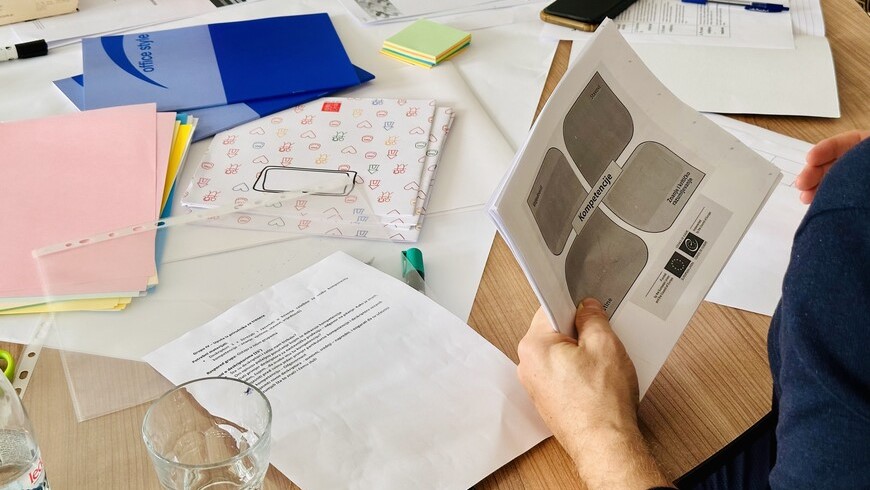Bosnia and Herzegovina’s classrooms are becoming stronger spaces for dialogue, participation and inclusion as a new generation of teachers steps forward to lead on democratic culture.
From 23 to 26 October, teachers from primary and secondary schools in Brčko, Čelić, Kiseljak, Novi Travnik, Orašje, Vitez and Zenica gathered in Sarajevo for a three-day Training of Trainers in the programmes Competences for Democratic Culture, “School of Thinking” and “School of Values”, thereby completing the training process and officially becoming trainers in these programmes.
Building on previous successful trainings, the participants had the opportunity to deepen their understanding of adult learning principles and enhance their skills in applying creative methods and tools for strengthening democratic school culture in their schools and communities, through innovative training on the Reference Framework of Competences for Democratic Culture (RFCDC).
During dynamic and interactive sessions, participants had the chance to simulate their own training sessions, receive constructive feedback from trainers and peers, and collectively explore and discuss ways to improve and practically apply their newly acquired knowledge in schools and the wider community.
A special part of the training was devoted to reflecting on the role of Resource Centres for Democratic Culture — what they represent, what kind of support they can provide to schools, and how they can be further strengthened as places of learning, collaboration and development. These efforts are part of a broader mentoring initiative implemented in cooperation with the Centre for Educational Initiatives Step by Step, with the goal of building a pool of qualified educators for the RFCDC who will act as trainers in their own schools and communities.
“Through this training, we gained new ideas that we will apply in our teaching and future training, which will make us more practical, efficient, confident, creative, and communicative. As a result, our classrooms will become more dynamic and prosperous,” said one participant. Speaking about the training, another participant noted that “the lessons learned and challenges from previous training sessions were very well addressed this time,” while a third participant emphasized that their vision is to continue working and reach the stage of implementing concrete measures without major obstacles.
With this training, schools have taken an important step towards establishing new and strengthening existing Resource Centres for Democratic Culture. These centres and their trainers will, in the coming period, serve as support hubs for other schools in developing and promoting democratic values, participation, and an inclusive school climate.
By focusing on activities that, through professional development, mentorship and collaboration, empower teaching staff to innovate and create inclusive, learner-centred classrooms, the joint European Union and Council of Europe project Quality Education for All in Bosnia and Herzegovina promotes quality education as a social value and a fundamental human right. In this way, teachers play a crucial role in creating learning experiences that leave a positive mark on the lives of students, while contributing to the development of a more inclusive and democratic society.
The action “Quality education for all” is part of the joint European Union and Council of Europe programme “Horizontal Facility for the Western Balkans and Türkiye”.

